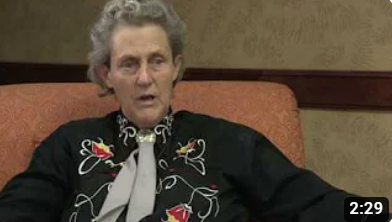FOR IMMEDIATE RELEASE
Contact: Ryan Walker, Marketing & Communications Manager, The Livestock Conservancy
rwalker@LivestockConservancy.org
(919) 542-5704
Editor’s Note:
Interviews available upon request.
PITTSBORO, NC, USA [January 14, 2020] – In December, 2019, The Livestock Conservancy welcomed continued support by The Manton Foundation with a grant commitment of $500,000 over the next two years.
The Livestock Conservancy is the leading umbrella organization for rare and endangered livestock and poultry breeds and breeders in the United States. Nearly all of the livestock breeds identified as endangered by the Conservancy are represented by a breed association or society, each composed of tens to hundreds of volunteer members.
With this extraordinary gift, the Conservancy will invest in thousands of people who share the common purpose of protecting endangered breeds from extinction. According to Livestock Conservancy Executive Director Dr. Alison Martin, “Breed association members have been our closest and most important partners for more than 40 years. We are excited to be able to use this grant to further support their conservation work for rare breeds.”
The Manton Foundation grant will enable the Conservancy to create a comprehensive program to:
- Establish voluntary standards and certification for association management, increasing both the professionalism and productivity of these widely volunteer-led organizations.
- Provide training, education, and in-house support for associations including promoting the benefits of livestock ownership and recruiting new members. Strategies will improve the communication skills of breed associations and help grow their membership.
- Create a reliable, centralized pedigree registration service that will secure rare genetics, increase accessibility of information for breeding decisions, improve the financial value of individual registered animals, and safeguard historical records for years to come.
“When people work together to save an endangered breed, their efforts are multiplied, resulting in far more than can be achieved by working alone” said Dr. Martin. “This program will help secure genetics and expand populations, graduating more breeds off the Conservation Priority List.”
This is the second generous grant awarded to the Conservancy by The Manton Foundation. The Foundation’s 2018 grant, “Next Generation Farming: Northeastern Heritage Livestock,” supported hundreds of individual heritage breeders through establishment of the American Milking Devon Cattle Study, the Shave ‘Em to Save ‘Em initiative for heritage sheep, and competitive Microgrants.
By educating and training the organizations on the front lines of saving rare and endangered livestock, and providing the advice and services they have asked for, The Livestock Conservancy can leverage the power of strong, effective breed associations. Together, we are stronger.
###
About The Livestock Conservancy:
The Livestock Conservancy is America’s leading organization working to protect over 150 heritage breeds of livestock and poultry from extinction. Included in its mission are: donkeys, cattle, goats, horses, sheep, pigs, rabbits, chickens, ducks, geese and turkeys. Founded in 1977, the Conservancy is the pioneer organization in the U.S. working to conserve historic breeds and genetic diversity in livestock. The Livestock Conservancy’s mission is “to protect endangered livestock and poultry breeds from extinction.”
Why are domestic breed of livestock and poultry in danger of extinction?
Modern agriculture and food production favors the use of a few highly specialized breeds selected for maximum output in intensively controlled environments. Many traditional breeds do not excel under these conditions, causing their popularity to decrease and leaving them faced with extinction. Although these breeds do not fit today’s mainstream model of agriculture, they are exquisitely suited for backyards and small to medium-sized farms.
Why is genetic diversity important?
Like all ecological systems, agriculture depends on genetic diversity to adapt to an ever-changing environment. Genetic diversity in domestic animals is revealed in distinct breeds, each with different characteristics and uses.
Traditional, historic breeds retain essential attributes for survival and self-sufficiency – fertility, foraging ability, longevity, maternal instincts, ability to mate naturally, and resistance to disease and parasites. As agriculture changes, this genetic diversity may be needed for a broad range of uses and opportunities. Once lost, genetic diversity is gone forever.
***
Editor’s Note:
Interviews available upon request.



